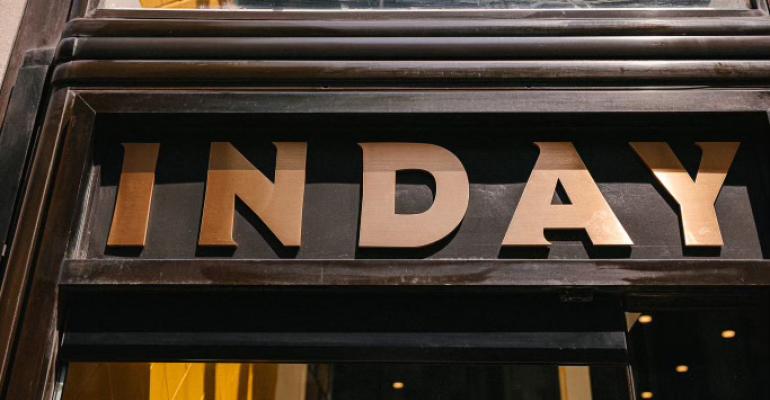In December 2023, INDAY, a fast-casual Indian chain based out of New York City, acquired Beatnic, a vegan restaurant also based in NYC, for an undisclosed amount. This marked the beginning of a new chapter for INDAY and the end of another for Beatnic, formerly by Chloe.
By Chloe had seen more than its fair share of troubles since its founding in 2015. Co-founder Chloe Coscarelli left the company in 2016 and entered a legal battle with her former company about the brand’s use of her name.
In December 2020, citing the pandemic, By Chloe filed for Chapter 11 bankruptcy protection. Then-owner BC Hospitality Group Inc. put the chain up for sale after the filing, and in March 2021, By Chloe was acquired by a group of investors. A condition of the sale was that the brand could no longer use the By Chloe name.
As part of the final chapter of the By Chloe saga, the chain was renamed in May 2021 to Beatnic. What was once a 14-unit chain would become a five-unit chain over the next two years.
That’s when INDAY stepped in.
The Indian concept shared a board member with Beatnic and the deal got rolling from there. Founder Basu Ratnam, who used to work in finance, thought this acquisition was the perfect way to help INDAY grow post-COVID pandemic.
All locations of Beatnic will be converted to INDAYs by summer 2024, and thus the saga of by Chloe will be over. The deal will bring INDAY’s total unit count to 10 and bring the chain into its first market outside of New York City: Boston.
But Beatnic will have new life.
Ratnam’s concept does not serve traditional Indian food, but it’s also not Americanized Indian food. It’s influenced by the Ayurvedic philosophy, which is a system of medicine based on the idea that disease is caused by an imbalance or stress in a person’s consciousness.
“Our mission is to serve good food and good karma every day,” Ratnam said.
Started in 2015 by Ratnam, who was working in finance in New York City at the time, INDAY was meant to open customers up to a new version of Indian food that would make them want to return and experience the flavors of Ratnam’s childhood with the ease of a fast-casual restaurant.
“When we started, we felt like Indian food was still very much placed in this kind of silo,” he said. “Someone said to me early on, ‘Indian food stays with you for the wrong reasons, because you leave it in the restaurant and your clothes smell’ and that really felt like the prevailing notion. What we tried to introduce was something that I think many Indians are familiar with. Food is considered to be a source of health, of connection to your mind and body and enlivened air of your spirit. And so that’s the essence from which we built our brand.”
Though the chain started out with a makeline, following in the steps of Chipotle, it soon pivoted to chef-crafted menu items and got rid of the makeline entirely. At that time, the restaurant was entirely gluten- and sugar-free but has since introduced bread to the menu.
“We found the average lunch guest was so programed to the Chipotle model,” he said. “They defined the category and when you walk into a Chipotle 80% of the flavor profile is already picked for you, everything works well together. The same is not true with Indian food… We felt like it was really important for us to try and curate and help guide guests through a better experience.”
Ratnam said INDAY has benefitted from the increase in consumers’ flavor palettes, which have been moving toward more global concepts and rich, deep flavors not available in traditional American cuisine. With that flavor comes some hardships.
Scaling spices, Ratnam said, is difficult, and took INDAY a lot of time to figure out properly. The chain’s chef told him that scaling spices is not done by proportions, and that, when scaled improperly, spice can increase tenfold.
Along with the Beatnic units, INDAY also acquired the corporate team.
During the pandemic, INDAY has scaled down its staff and when the deal went through late last year, Ratnam said it was like a small company getting the resources of a large company. That’s also influenced the cuisine.
Beatnic was a vegan concept and Ratnam said that’s been helpful since many of the items at INDAY are vegetarian and some of the new menu items and LTOs will be influenced by this influx of new employees.
Moving forward, INDAY is focusing on the five new units it’s converted because of the Beatnic deal for 2024. In the coming years, however, the chain is planning on opening three to five restaurants per year, much more than the single unit the brand has opened every year since its founding.





